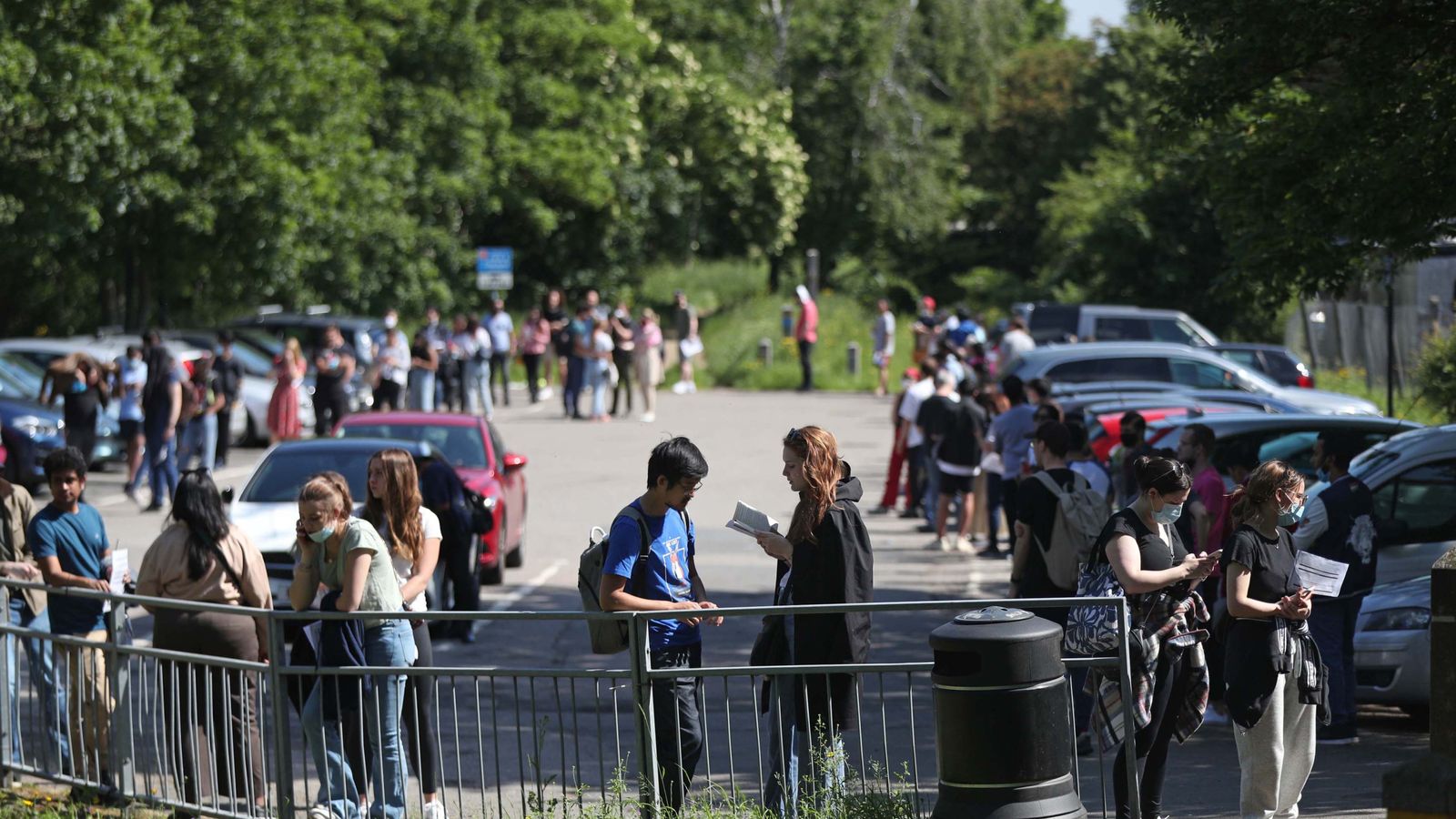It is the decision the prime minster did not want to take.
But when presented with the data he was left with no choice.
His scientists warned him that If the country was allowed to fully open on 21 June, a third wave would follow in the summer resulting in “thousands of deaths”.
“We’re seeing cases growing by about 64% per week and in the worst affected areas it’s doubling every week,” the prime minister said.
“The average number of people being admitted to hospital in England has increased by 50% week on week and by 61% in the northwest, which may be the shape of things to come, because we know the remorseless logic of exponential growth.
The highly transmissible Delta variant, which was first identified in India, is driving a surge in infections particularly among younger, mostly unvaccinated people.
Professor Chris Whitty warned that if these infections keep rising exponentially there is a danger of the NHS becoming overwhelmed.
There is normally a 10-day lag between infections and hospital admissions and with more hospital admissions there will be more patients who will require mechanical ventilation.
The numbers are rising in all of these cases in the North West of England and although they are still very small compared to the first and second waves, they are enough to concern officials. The rest of the country is expected to follow the North West.
The 30-50 age group is the one thought to be most at risk.
Hospital admission data shows there are more under-65-year-olds currently being treated for COVID-19 in hospital than patients over that age. It is the reverse of the situation in the previous waves.
The prime minister said “millions of adults are still unvaccinated” and he hopes by delaying the lifting of all restrictions he can give the country’s vaccination programme a fighting chance to overtake the spread of the virus.
He said: “By Monday 19 July, we will aim to double jab around two-thirds of the adult population, including everyone over-50, all the vulnerable, all frontline health care workers and everyone over-40 who received their first dose by mid May.
“And to do this we will now accelerate the second jobs for those over-40, just as we did for the vulnerable groups, so they get the maximum protection as fast as possible.”
More data published today showed the vaccines are effective against this variant but only after two doses. By pushing the date back to 19 July millions more vaccines can be administered.
Professor Chris Whitty said: “One dose of the vaccine does provide some protection, but you do need two doses of the vaccine to provide a strong degree of protection but once you have two doses, there is somewhere between 76 and 84% reduction in symptomatic disease.”
There is a great deal of uncertainty about what will happen over the next few weeks.
The modelling warns of thousands of deaths if the next and final stage of the roadmap is followed.
The vaccine programme puts us in a much stronger position. If we did not have a vaccine we would be in a much worse position, probably considering another lockdown to stem the rise in infections.
Instead the prime minster has paused or delayed the reopening of the country to let the vaccines give us more protection. He said the next stage is “irreversible” so it is important to get it right now.
“I’m confident that we will not need more than four weeks, so we won’t need to go beyond 19 July. It’s unmistakably clear vaccines are working, and the sheer scale of the vaccine rollout has made our position incomparably better than in previous waves.”






















